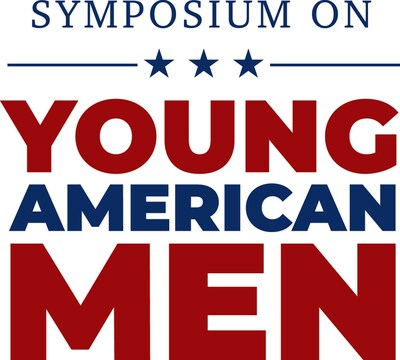BREAKING: Exclusive Poll Released at Symposium on Young American Men
WASHINGTON, Nov. 4, 2025 /PRNewswire/ --Cygnal, a 538 and New York Times top-rated pollster, released today its landmark survey of 1,000 males ages 16 to 28 performed in October 2025 for The Lafayette Company as a part of its inaugural Symposium on Young American Men.
"Young men are more online than any generation in history. But this unprecedented connectedness is not resulting in greater well-being. In fact, what they trade for being so online is fewer interpersonal relationships, poorer mental health and worse life satisfaction," Alex Tarascio, principal and pollster at Cygnal, said. "Those who affiliate with organized groups or religion, who prioritize socializing with others in-person or who regularly exercise find themselves far better off than their peers who do not."
"These findings also reinforce the necessity of policymakers going to those closest to the problem — individuals and organizations working with and for men — to learn how to solve these challenges. Experts can be found in men's lifetime brotherhood or service organizations, collegiate fraternities, religious institutions and athletic clubs," Ellen Carmichael, founder and president of The Lafayette Company, said. "Here, in the midst of intense internal and external pressures, Gen Z males still find true meaning and belonging. United by shared goals and values, these young men benefit from reliable social systems made of individuals who know who they are and who care about what happens to them."
Key Takeaways
Amid shifting models for manhood and widespread withdrawal, males ages 16 to 28 report the pains of disconnection.
- MENTAL HEALTH: 57% of respondents said their mental health is just "fair," "poor" or "very poor."
- FRIENDSHIPS: 48% of Gen Z males have two or fewer friends, with 11% having no friends at all.
- COVID EFFECT: 36% of young men say they're less socially engaged compared to pre-2020, and 41% of say their mental health has worsened.
- MENTORS: 40% of young men said they don't have a male mentor.
- GUIDANCE: 17% of respondents don't look to anyone in their life for guidance about how to be a man in society, so they figure things out on their own. 39% turn to their fathers, 22% to friends or peers and 21% to their mothers.
- AFFILIATION: 35% of males ages 16 to 28 are not affiliated with any organized group (e.g., religious congregation, intramural sports team, online community, political or volunteer organization, educational association).
Gen Z males spend a vast amount of their free time online and do so at the expense of forging personal connections.
- ONLINE ACTIVITY: 50% spend five or more hours a day online streaming, gaming, browsing, and using social media. 27% dedicate more than six hours each day to recreational online activities.
- YOUTUBE USAGE: 45% spend three or more hours per day day on YouTube alone with 11% spending more than six hours each day on the streaming site.
- VIDEO GAMES: 53% of respondents ages 16 to 28 play video games daily. 36% do so in excess of two hours per day.
- FREE TIME: Young men say their top three ways to spend free time are gaming (43%), tv/streaming (37%), and music/podcasts (26%).
- PERSONAL CONNECTIONS: 48% of Gen Z males can be classified as "low social," spending between zero and five hours per week in-person with friends or participating in social activities.
Young men who do best are affiliated with single-sex groups or organized activities, practice religion to any degree and regularly exercise.
- ORGANIZATIONAL PARTICIPATION: Males ages 16 to 28 who participate in single-sex and co-ed organizations that span interests, hobbies, and religious identities have more social connections and better mental health than non-affiliated peers. They assess their mental health more positively (46% positive, 22% negative) compared to peers who are not affiliated with any organization (32% positive, 31% negative). They are significantly more likely to say their lives are going the way they had envisioned (57% affiliated, 37% non-affiliated). Across the board, affiliated men are significantly more likely to engage in behaviors known to catalyze positive outcomes, like having a male mentor (61% affiliated, 42% non-affiliated) and maintaining friendships (57% of affiliated males have three or more close friends, compared to 36%of non-affiliated men). They're also more likely to limit recreational online hours (23%of affiliated men spend more than six hours online daily, compared to 33% of non-affiliated men) and spend more time engaging in in-person activities (55% of affiliated men spend at least six hours each week socializing with others, compared to 36% of non-affiliated men).
- COLLEGIATE FRATERNITY: Those who belong to a fraternity on a college or university campus overwhelmingly report good mental health (53% positive, 14%negative) compared to young men overall (41% positive, 24% negative). They are significantly more likely to say their lives are going the way they had envisioned they would (61% fraternity, 37% non-affiliated). They're very likely to have a male mentor (71% fraternity, 42% non-affiliated) and maintain close friendships (64% of fraternity men have three or more close friends, compared to 36% of non-affiliated men). They're also more likely to limit recreational online hours (19% of fraternity men spend more than six hours online daily, compared to 33% of non-affiliated men) and spend more time engaging in in-person activities (68% of fraternity men spend at least six hours each week socializing with others, compared to 36% of non-affiliated men).
- ROLE OF RELIGION: Young men who identified as religious, regardless of degree of observance, also have strong social connections and well-being. Respondents who regularly or sometimes practice their religion report stronger mental health (52% and 50% positive, 15% and 19% negative, respectively) compared to irreligious peers (32%positive, 33% negative). Their lives are going the way they expected (59% and 61%, respectively), while 42% of non-practicing men said the same. These individuals spend less time online (23% of regularly religious and 21% sometimes religious men, compared to 33% of non-religious men, spend in excess of six hours of online daily) and are more likely to socialize in-person for at least six hours weekly (58% of regularly religious and 60% sometimes religious men, compared to 38% of non-religious men).
- EXERCISE AND WELL-BEING: Respondents who exercise regularly report better mental health (48% positive, 20% negative) and are significantly more likely to say their lives are going how they expected (55% for those who exercise, compared to 27%for those who never do). These young men have a strong friendship network (54% said they have three or more close friends, compared to 28% for young men who don't exercise), and they spend more time interacting with others in-person than those who don't exercise (54% dedicate six or more hours weekly, compared to 19% of non-exercisers). They also limit their online recreation, with just 22% considered "high" users (more than six hours a day), compared to 42% of those who don't exercise at all.
The survey also collected open-ended responses to questions asking men to describe their lives. The most noteworthy of these submissions, in addition to a full polling deck, are located at the link below.
Download the full presentation here.
![]() View original content to download multimedia:https://www.prnewswire.com/news-releases/breaking-exclusive-poll-released-at-symposium-on-young-american-men-302604202.html
View original content to download multimedia:https://www.prnewswire.com/news-releases/breaking-exclusive-poll-released-at-symposium-on-young-american-men-302604202.html
SOURCE The Lafayette Company


